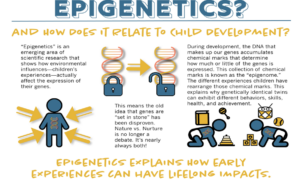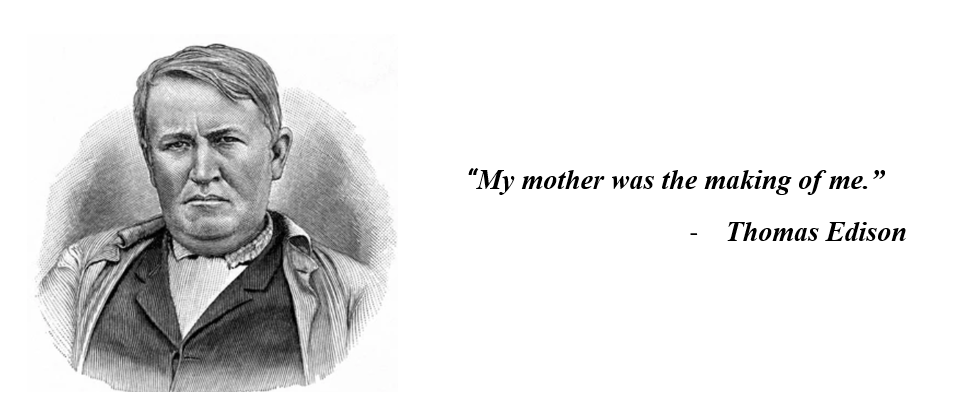I have interacted with hundreds of children while working in my edtech startup, Brightchamps. To say that I have come across some outstanding children would be an understatement. There are kids whose brains have astounded me. They are clearly exceptionally gifted. However, they also managed to pique my curiosity; are geniuses always natural-born and does genius always translate to success?
The Measure of Success
When I set about trying to understand the world of children and how they perform in life, it was important to define the success metrics. For the purposes of this article, I have stuck to the conventional definition of success, the way society seems to perceive it. So, people who seem to progress through life in terms of productivity, social status, wealth or popularity are deemed to be successful. Relative success is when a person is successful in isolation but might not be when pitted against someone else. Society usually places high expectations of relative success on children who are deemed to be highly intelligent or who show signs of high functioning cognitive or physical abilities early on. With this in mind, I set about trying to understand whether in-born intellect and talents really outclass acquired knowledge and effort in the long-tun.
Epigenetics- It’s Not All About the Genes
There is no dearth of research on the roles that genes have to play in the intelligence of a person. Research published in Nature Genetics[1] asserts that there are more than 30 genes that might be connected to intelligence. However, whether intelligence actually translates to genius and positive health and economic outcomes is highly debatable. A new area of research in this field is Epigenetics.

Source: Center on the Developing Child, Harvard University[2]
So, genes do not lay out in stone the path that a child’s future will take. Positive and negative experiences can have a lifetime impact on how the brain functions.
This probably explains why many children who were touted to be exceptional in their fields actually faded away with time. Home Alone actor Macaulay Culkin tasted success as a young actor but struggled to be on track as an adult. On the other hand, Satya Nadella, who had completed his engineering degree from a rather obscure college in India went on to become the head of Microsoft. Environmental factors, upbringing, the ability to persevere and the access to the right resources, all have a bearing on how our children will turn out.
Nurturing the Genius Within the Child
In 1991, Judit Polgár became the youngest person to earn the grandmaster ranking in chess, breaking Bobby Fischer’s record. She was 15 at the time. While this in itself is a great feat, the story becomes more interesting when we take a look at the legacy of the Polgár sisters[3]. Lazlo Polgár set out to prove that every healthy child has the potential to become a genius if given the right upbringing and resources. He trained all his three daughters in chess, a game which had clear measurable outcomes. Both he and his wife were mediocre chess players with no genetic or intellectual superiority in the game. They however, left no stone unturned to provide the resources needed for their daughter to learn chess and train in it. All three of their daughters, Susan, Sofia and Judit, became chess grandmasters. Judit became the best female chess player of all time. She defeated the likes of Vishwanathan Anand and Anatoly Karpov, establishing her dominance in the game. In fact, her success in the male dominated world of chess actually led many to question their long-held belief that gender differences have an impact on the performance of chess players.
“My father believes that innate talent is nothing, and success is 99 percent hard work. I agree with him. “
-SUsan polgar
The Polgár sisters are proof of the fact that geniuses can be cultivated. Their father Lazlo even wrote a manual called “Raise a Genius!”. Clearly, there is an argument to be made for nurturing our children and helping develop the right traits to best enable them for success. The question then arises is how to lead them on the right path? From my experiences and observations, cultivating a sense of curiosity is a great way to lead children to discover their own genius.
The Pill of Curiosity- The Path to Genius
When Russel Golman and George Loewenstein of Carnegie Mellon university[4] gave their “information gap” theory, they laid out the basis of the connection between acquisition of knowledge and curiosity. As per them, the feeling of uncertainty that arises when we do not have knowledge about something, leads us to become curious and try to acquire this knowledge. An article in the Harvard Business Review[5] talks about the five-dimensions of curiosity.
- Deprivation sensitivity – which is the relief that one feels when a knowledge gap is filled. Children are naturally curious people. As children, they try to understand the world. Their “why” questions are what help them fill this thirst for understanding.
- Joyous exploration – the fascination at having learnt or discovered something new
- Social curiosity – the inherent curiosity about the society and people that we humans have, being the social animals that we are
- Stress tolerance – exploration of knowledge gaps helps withstand anxiety
- Thrill seeking – the thrill of new experiences driven by curiosity helps us take various risks
These dimensions and the multitude of research that exists that associates curiosity with increased intelligence, perseverance, mental and physical energy and an overall superior performance[6], has led me to believe that curiosity is indeed a trait that we as parents should focus upon.
Beyond the Limits- The Role of Parents in Igniting Curiosity
Thomas Edison, the inventor of the light bulb, is known to have credited his mother for his education. He was apparently called “addled” by his teacher, a term used for someone who does not think clearly or is confused. His mother home-schooled him. The formal education system was unable to recognise the mind of the genius that quite literally, lighted up the entire world. But, the mother did. We, as parents, have a huge role to play in the development of our children. Learning, can be an acquired process if we give our children the right resources.

Children are born curious. But to keep that curiosity alive is the task that parents have to do. The Michigan State University[7] provides the following suggestions to nurture curiosity:
- Wondering aloud about questions which trigger natural curiosity like why are there stars in the sky?
- Encouraging natural interests of the child which can help them excel in their chosen field
- Answering questions clearly and in a simple manner will help children satisfy their curiosity. The study also advises to first ask the children their thoughts before answering
- Using open-ended questions like who, what, when, etc. also stimulates curiosity
Geniuses Fostered Through Curiosity
Most of human history has progressed through inventions driven by curiosity. It was curiosity that propelled Columbus to go on the lookout for India. It was curiosity that led to man stepping foot on the moon. There are many geniuses who were either not given the right resources and opportunities or were not discovered by the world in time. Srinivasa Ramanujan was one such man. He was self-taught, his natural curiosity for mathematics led him to become one of the best mathematicians in the world. But had he not been given an enabling environment by the mathematician G.H. Hardy to give free rein to his curiosity, the world would probably never have been introduced to the genius of Ramanujan.
While all of us want our children to land on the metaphorical stars and the moon, we cannot guarantee it. What is in our control though is the power to help them adopt the methodologies that can aid the learning process. Learning can become an acquired habit and can be fostered through curiosity. This combined with effort and perseverance can help children gear up for life. My son recently came up with an idea of a nomadic civilization inspired by his interest in history. While I did not understand much of his concept, his attempt to know more about the world and apply that in some form was a source of comfort and inspiration for me. For me, that means, that he is learning!
“I have no special talent. I am only passionately curious.”
-ALBERT EINSTEIN

